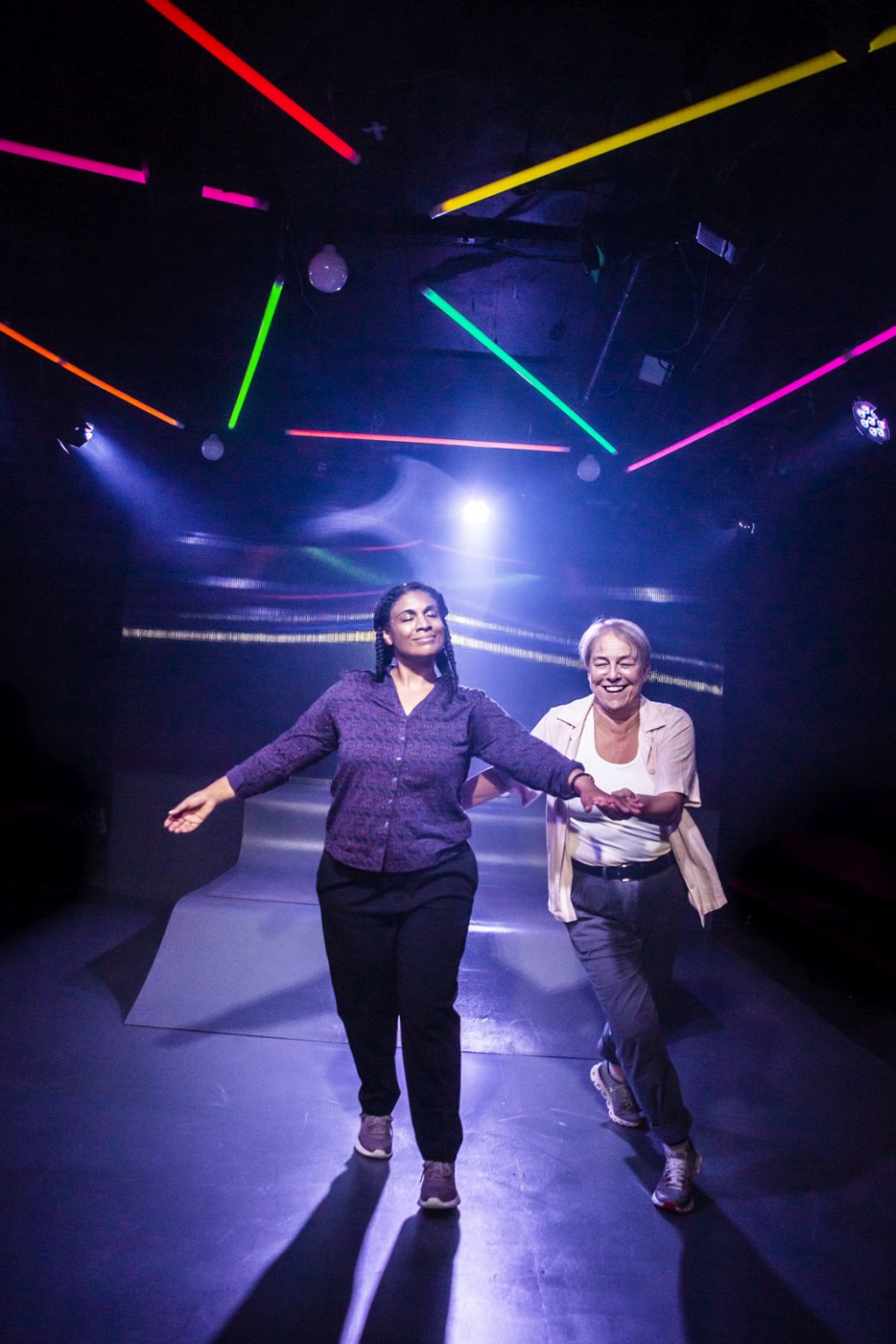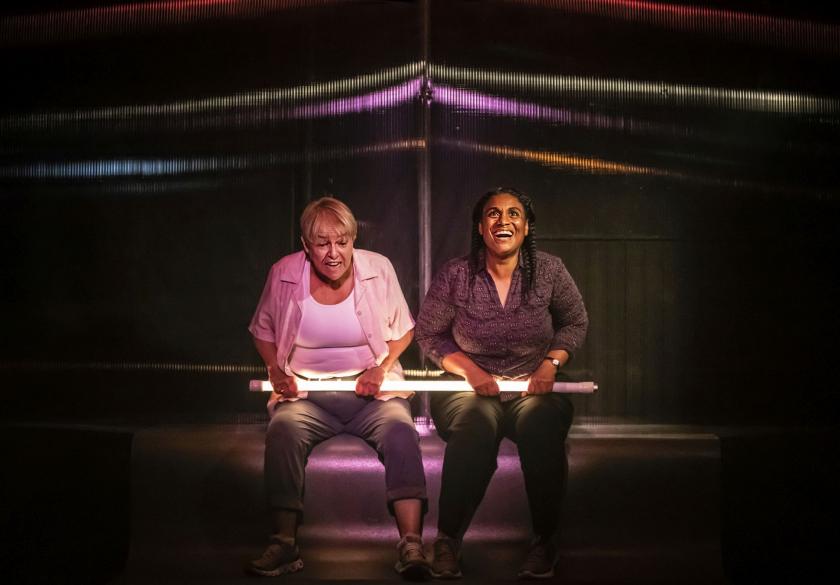A tender love story has arrived at the Kings Head theatre from the US, where its author, Tanya Barfield, is an award-winning playwright for both television and theatre. The plot is simple: two women — one white, one Black — meet in an office where one is a supervisor, the other a science teacher turned temp, and their lives become entwined over the next 25 years.
But Barfield mixes things up by structuring the narrative like a jigsaw puzzle. The audience then has to put all the pieces together.
The structuring device guarantees a degree of pathos — there’s a poignancy in learning a relationship has ended as we are simultaneously watching it start. Between those two points lie many years, and we are going to be scrutinising the two women's interactions for signs of missteps and fissures, as well as for what's enduring about their partnership.
 We first see Erica (Susie McKenna) and Vicky (Eva Fontaine) discussing marriage: a big commitment or a path to disillusion? We are on Vicky’s doorstep, where Erica has arrived with the news that her father is dying. Next she is proposing to Vicky, who can’t stay around to talk as she is going skydiving. A couple of short scenes later from different periods of their lives, we will see both of them in the plane, waiting to jump out, Erica obviously terrified. This image is usefully placed early in the play as a key to understanding Erica’s behaviour, even though it is chronologically out of step.
We first see Erica (Susie McKenna) and Vicky (Eva Fontaine) discussing marriage: a big commitment or a path to disillusion? We are on Vicky’s doorstep, where Erica has arrived with the news that her father is dying. Next she is proposing to Vicky, who can’t stay around to talk as she is going skydiving. A couple of short scenes later from different periods of their lives, we will see both of them in the plane, waiting to jump out, Erica obviously terrified. This image is usefully placed early in the play as a key to understanding Erica’s behaviour, even though it is chronologically out of step.
Scenes are mostly short and switch rapidly, indicated by a flickering of the lighting. Gradually Barfield’s method becomes clearer — certain scenes are repeated with a bit more content each time. Meanwhile there are key markers of the date the couple meet — CD roms, Aids rallies, the Challenger disaster of 1986. Erica, we see, is scared of all heights, even a Ferris wheel, whereas Vicky is an apprehensive novice kite-flyer. She, ever the supervisor, is the one who keeps a firm hand on the purse strings when the two women move in together.
Suddenly a scene reveals that they have a child, then a later one that they have two children and have married. The wedding, though, is a vexed affair as Vicky’s father decides not to attend. She has described Erica to her parents as her `”special friend`” and baulks at the “butch” blazer Erica chooses to wear at her first meeting with them. In another scene they have a frank discussion about their priorities: Erica’s is being gay, Vicky’s is being Black, and she isn’t even sure she knows why gay people need to get married.
The play is in effect an answer to that doubt of Vicky’s. We see how the women’s relationship, even when it falters, is a mainstay. Barfield carefully places scenes of the real love between them alongside their often comic domestic scraps — over things as banal as which kite to buy, eating Pop Tarts for breakfast, who should be making papier-mâché models of Pluto for Chloe’s school project.They also thrash out the inevitably vexed issue of whose career is the more important. But like a star that has died but whose light reaches Earth years later, the bond between them stays bright.
Director Steven Kunis exploits the little Kings Head stage inventively, deploying a neon tube and a platform with a foam centre as the only trappings. The actors use two entry points to designate moving into other spaces, but the whole is mostly conjured by the text, a detailed sound design, and some strong and sensitive acting. The sky-diving scenes, in particular, are impressivety staged. It’s a well-wrought and absorbing 90 minutes, though more an exercise in style, perhaps, than a piece with something new to say.















Add comment